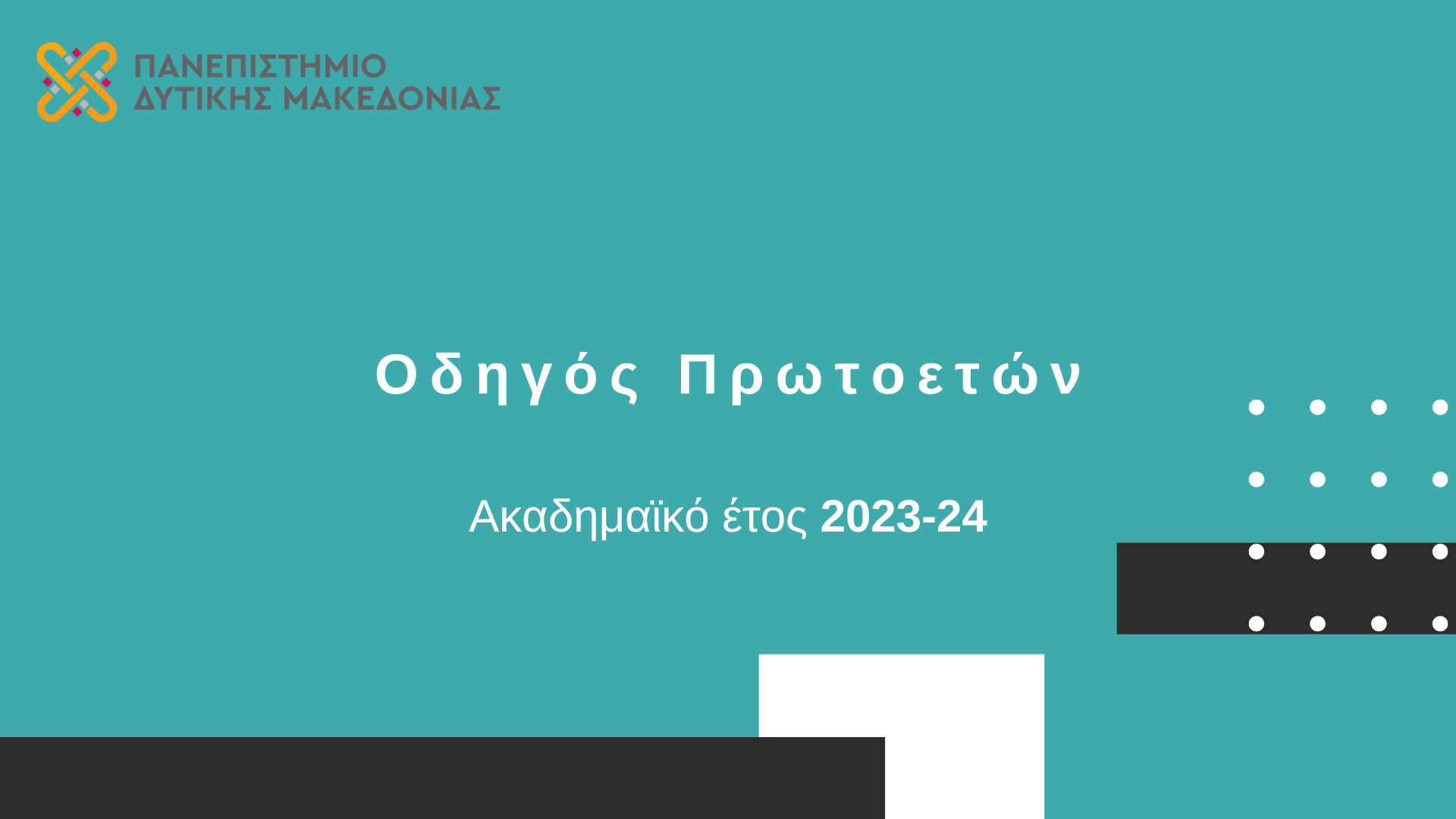Department of Primary Education
Graduates’ professional rights enshrined
Graduates of the Department may work as:
Teaching Staff /Teachers at schools
- Graduates of the Department of Primary Education are provided with pedagogical and didactic competence, so that they can work as teachers in public and private Primary Schools of Greece, EU countries and other countries abroad (Law 4589/2019, Government Gazette 13 vol. A / 29-1-2019, article 54, par. 4. Article 3§1, Presidential Decree 320 – Government Gazette A116 / 7.9.1983). Law 1566/85 (Government Gazette A167 / 30.9.1985 article 13) explicitly stipulates that for the appointment to the position of a teacher a “degree of Pedagogical department of Higher Institution with teachers’ direction” is required (article 12§2 & 3).
- In programs of education expertise and training, in educational units of secondary technical and vocational education, as well as in Vocational Training Institutes, given that the graduates of Departments of Education from Higher Institutions have pedagogical and didactic competence (article 2§3.c, law 3848 / 2010 – Government Gazette A71 / 19-5-2010) and can teach.
- In various educational institutions and agents of pedagogy and training of school children (indicatively: child care institutions, places of creative employment and entertainment for the child, study centers, etc.)
- As directors in all kinds of Care, Early Childhood Education and Training Units (article 7§1, Ministerial Decision Π2β / οικ. 2808 – Government Gazette Β / 645 / 31.7.1997).
- As teaching staff in Reception classes as well as in refugee education classes.
Teaching staff in museums, therapeutic communities, Cultural, Youth and Lifelong Learning Centers, Local Authorities, Training, Vocational Training, and Distance Learning Centers:
- in educational institutions for teaching Greek as a foreign language as well as in classes for parallel support of learning Greek as a second language
- in programs of teaching Greek to adults
- in educational programs of museums, libraries, cultural Institutions as long as they acquire the relevant certification and competence.
- in educational programs of hospitals, therapeutic communities, juvenile detention centers, industrial units, children’s camps, summer schools and “Open Universities”
- in the educational programs of students with linguistic and cultural peculiarities
- in social care units and in refugee reception centers
- in institutions of child care, support and rehabilitation as well as counseling of children and families and in general where there is a need for staff for the psycho-pedagogical support of minors and adults as long as they have relevant certification and competence
- in educational programs in centers of Education and Training, Vocational Training, and Distance Learning Adult Education
- in educational activities organized in Centers of Culture, Youth, Creative Employment and Lifelong Learning, and more generally in relevant bodies of the Local Authorities
- in facilities for childcare and creative employment of children at an individual or group level (eg playgrounds, hotels, department stores, banks, restaurants, adult entertainment venues, etc.)
- as teaching staff in bodies of Environmental Education / Training for Sustainable Development and the promotion of Health Education as long as they have the relevant certification and competence. In particular, these bodies include:
- Non-government organizations of environmental and social orientation,
- Local Government Organizations and Development Companies,
- Thematic Museums, Natural History Museums, Aquariums etc.
- Management Bodies and Information Centers of Protected Natural Areas
- to Non-Profit and Non-Governmental Organizations that develop educational activities
Generally
- In all professional spaces for the provision of formal, non-formal and informal education, provided that they have the relevant certification and competence, as stipulated by law.
Research staff – work in Scientific, Research Centers, Institutes, Institutions & Laboratories
- as members of scientific teams for the organization and evaluation of educational programs
- as members of scientific teams for the production of educational material and educational software
- in research programs of study in the educational / teaching process in public and/or private school units of the first level of education
- as members of scientific teams that develop programs related to Sciences, Special Education, Environmental Education / Education for Sustainable Development, Adult Education, Computing and Education and Training in general.
- In units/ services of educational design
Generally
- in Scientific, Research Centers, Institutes, Institutions & Laboratories as research staff in matters of education and training
Note
Employment in the aforementioned categories is available as long as they have the relevant certification and competence, as defined by law (Master, Ph.D., Recognized scientific – research work in the cognitive area of the work).
Scientific staff – work in publishing houses & mass media
- in publishing houses of printed and electronic publications, production of printed and electronic educational material (media, software)
- in mass media (television, cinema, radio) for the research, study, organization, implementation of educational activities and broadcasts as well as the presentation of educational topics
- in Units and Companies for the production of educational material and software. “














